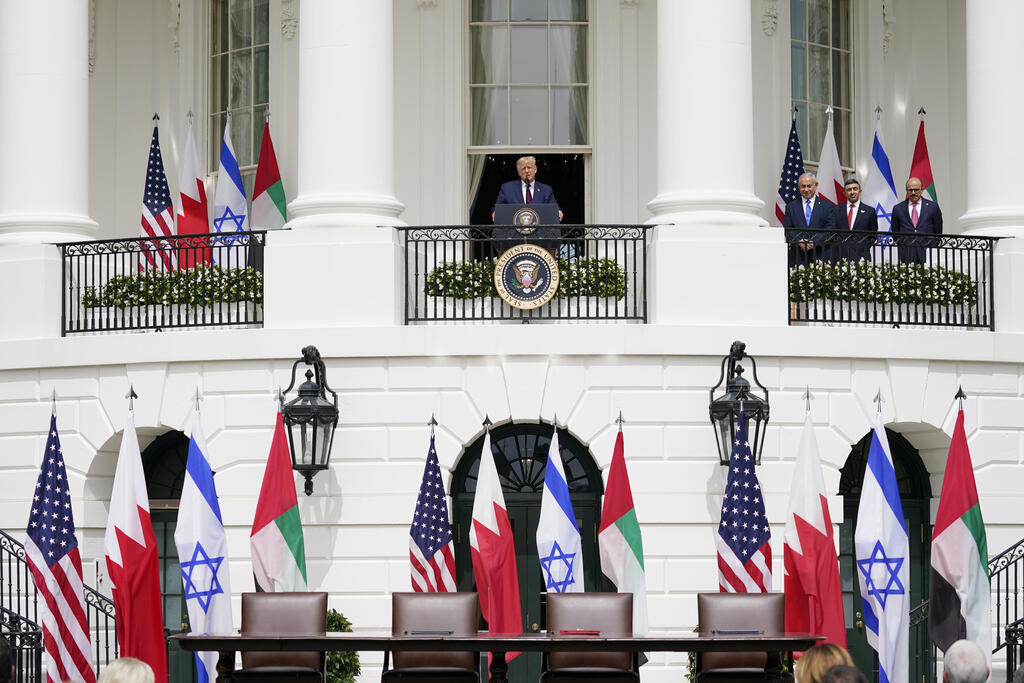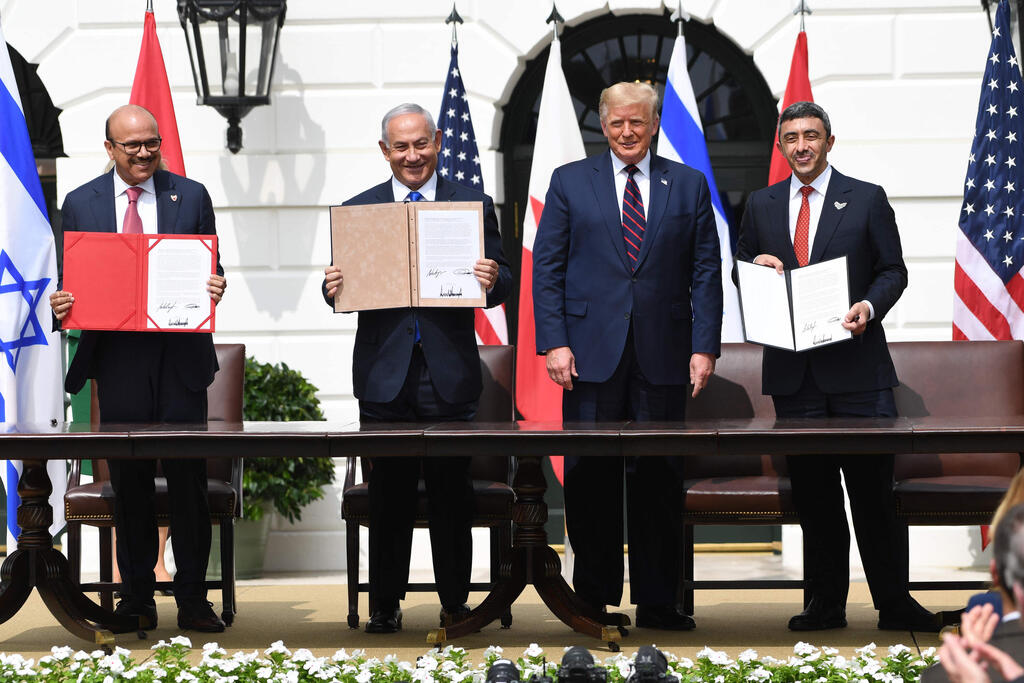Getting your Trinity Audio player ready...
Israel on Sunday, marked two years since the signing of the historic Abraham Accords with the United Arab Emirates and Bahrain.
The mutual opening of embassies, and the establishment of direct flights from Tel Aviv to the Gulf, were just the beginning, as massive business deals have already been signed, with perhaps many more in the making.
The Abraham Accords have also become a term to describe the other normalization agreements Israel signed after the initial declaration, with Sudan and Morocco.
Morocco may actually be Israel's most significant partner, especially in security and counterterrorism. The two countries even signed a security memorandum of understanding.
Since ties were established, Israel has held several military drills with the armies of Arab states. Last year, Israel, the U.S., the UAE and Bahrain held a naval drill in the Red Sea. Maritime security is a mutual interest that brings the sides closer together.
Experts also believe the surge in security cooperation in a wide range of fields, especially between Israel and the UAE, and Bahrain will likely deepen.
2 View gallery


President Donald Trump speaks during the Abraham Accords signing ceremony on the South Lawn of the White House,
(Photo: AP)
Despite the rapid progress, Israel still has some of the same problems that exist in its ties with neighboring Egypt and Jordan: a hostile public opinion.
A recent poll by the Washington Institute shows that Bahrain and the UAE public's reaction to the Abraham Accords is far more negative than positive.
Thus the Abraham Accords represent a massive breakthrough in Israel's ties with the Arab world, but there still is much that can be improved.


